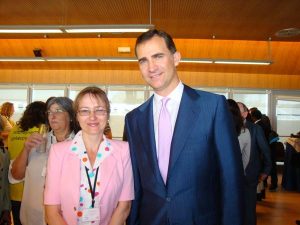
Presentation Diversity in Learning based on diversity of students
Dear readers,
Welcome to my blog. Here I am going to talk to you about different students, and how they study. Everything will be based on my personal observations.
My area of specialization is English as a Second Language, and I have been working with adults for a very long time, and that is why I can always rely on behaviourism in my teaching.
No matter if my students are good at discovering the truth (a language topic in my case) on their own or not, in the end, everything depends on if they have time on these endeavours on not.
And, unfortunately, most grown-up students, even the brightest ones, cannot find time to use their natural abilities for decision-making, problem-solving or creative thinking in their free time. Moreover, quite often they don’t have time to visit classes regularly, and therefore, a situation when A LOT of a foreign language material should be studied in a very limited time is unfortunately common. As a result, everyone appreciates it when I formulate the rule in the shortest and easiest way for them to understand and remember, and then provide exercises for practice.
However, since students are special in their abilities, previous knowledge, learning style, memory, attention, personality traits etc., I often feel myself as a conductor to the orchestra who is supposed to unite various musicians with different instruments and partitures and produce a nice melody as a result.
I would divide them roughly into three main groups while remembering that there are many people in between.
For example, when I deal with the students who would get most from cognitivism and constructivism, I truly enjoy their independent and unique attitude, especially when I can work with them individually. They argue, ask questions, find parallels with another linguistic material, use life examples etc. They like to work with the teacher, but they don’t mind studying with other students either. They are flexible, analytical, and easily accept the fact that there are exceptions to any rule. They are making our collaboration interesting, and I deeply appreciate that.
On the other hand, I can experience some difficulties with the students who are obvious extraverts as they sometimes behave as flowers without water – wither if their classmates are late or not coming to class. They need peer communication so badly that I try to avoid individual approach with them at all. They flourish in the group work though and often win English class competitions. And it doesn’t matter for them which topics we are studying or if there are exceptions to the rule as long as it gives them an opportunity of co-operating with others. I also understand that they are great at multitasking, so I usually don’t mind them doing a lot of extra things while studying. They are not getting distracted – they live their life like this; it’s their style.
As for those students who usually rely on the teacher to make progress together, they need a lot of attention and encouragement. Every small success should be pointed out and commended. They learn slowly but surely, and are not very fond of exceptions to the rules but will put up with them in the end. They expect me to be very diplomatic and creative with the explanations and exercises – if one doesn’t work, we will turn to another to succeed. Together with the “cognitivists”, they are interested in mechanisms of learning, and are grateful when I show them how to teach English better to their younger siblings. I don’t know if it is a good word to use, but they want me to love them deeply and unconditionally during our time together. This is how I feel when I work with students who prefer behaviourism – like a big sister at least.
So, due to students’ peculiarities, I am to provide intellectual challenge to one team of students, interesting group activities to another, and lots of love for the third one, and all these – in one lesson. Yes, it is an arduous, eclectic, but amazing job all the same. I happened to be an easily bored person myself, so using different approaches, methods and techniques for the same topic is what I like most.
I have a list of questions that I am contemplating myself. I would be grateful if you shared your ideas on them here or on Canvas.
1. If a student prefers constructivism, and a teacher prefers behaviourism, how do you think their communication will go? Will it be successful?
2. If the situation is reversed, and a student prefers behaviourism, and a teacher – constructivism, what will change in their cooperation?
3. I divided students roughly into three groups – curious ones, extraverts, and introverts. Did you discover any other group during your teaching or studying experiences?
4. How would you as a teacher deal with the student who came to class to see his groupmates and wasn’t psychologically ready to work with you only?
5. Do you think that studying online transforms learning theories a bit?
6. I named students’ lack of time the biggest problem of modern educational institutions which doesn’t allow an ESL teacher to use numerous methods in class. Which other barriers to the application of multiple approaches during one lesson do you see?
7. If a classroom unites students of different age, in their 20s, 30s, 40s, and 50s, does it automatically mean that different approaches are necessary? Do you believe that learning theories are age sensitive?
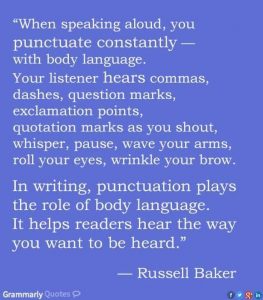 In What Ways Does Oral Storytelling Differ from Written Storytelling?
In What Ways Does Oral Storytelling Differ from Written Storytelling?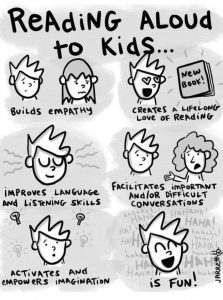
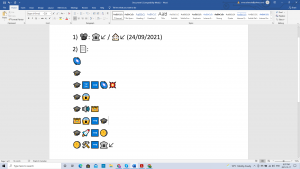
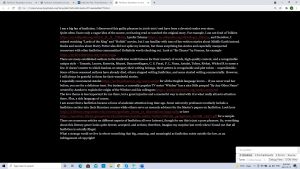 I misunderstood Twine and created my own story with the links:
I misunderstood Twine and created my own story with the links: 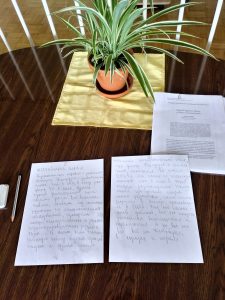 I have recently got fascinated by the heroic life of Albert Bandura. I am sure that I learnt this name long ago when I was an undergrad myself. However, then it was just one of the prominent names in the course of pedagogy. Now that I am reading Bandura’s articles, I understand how strong-willed and truth-oriented this person was. He is the best role model I can imagine. And he is also of Ukrainian origin.
I have recently got fascinated by the heroic life of Albert Bandura. I am sure that I learnt this name long ago when I was an undergrad myself. However, then it was just one of the prominent names in the course of pedagogy. Now that I am reading Bandura’s articles, I understand how strong-willed and truth-oriented this person was. He is the best role model I can imagine. And he is also of Ukrainian origin. My picture can clearly show that quarantine has modified my life. I haven’t used my purse for more than two years because I don’t have to. I visit the local grocery stores occasionally, buy as much as possible in one go, and return home. This constitutes most of my present-day off-line mobility.
My picture can clearly show that quarantine has modified my life. I haven’t used my purse for more than two years because I don’t have to. I visit the local grocery stores occasionally, buy as much as possible in one go, and return home. This constitutes most of my present-day off-line mobility.